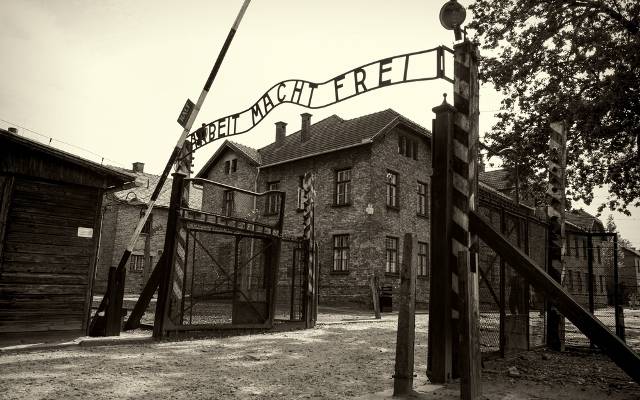A Budapest court sentenced Ferenc Oroshazi for denying the Holocaust ever happened. In Hungary, it is illegal to publicly deny, downplay or justify the Holocaust or the crimes committed by Hungary’s communist regime.
A Budapest court on Thursday sentenced a Hungarian man to three years’ probation for publicly denying that the Holocaust happened.
The case stems from a June 2012 speech in which Ferenc Oroshazi read excerpts from “Fatelessness,” a semi-autobiographical novel by Hungarian Holocaust survivor and Nobel Prize-winning author Imre Kertesz, and said they proved that the Holocaust didn’t happen.
“Fatelessness” narrates the experiences of a 14-year-old boy, Gyuri Koves, in the Auschwitz and Buchenwald death camps. Kertesz drew upon events from his own life for the book.
In one excerpt, Koves is asked about the gas chambers upon returning from the death camps and says that he did not see any although he heard about them. Oroshazi claimed that showed that the Holocaust did not take place.
An earlier request by Oroshazi to have Kertesz take the stand at the trial was rejected by the court.
Oroshazi was present only at the start of Thursday’s court session. He left after saying he didn’t accept the legitimacy of Hungary’s Basic Law, as the Constitution is now called, and refusing to recognize the authorities’ right to put him on trial.
Oroshazi’s lawyer appealed the verdict, asking for his client’s acquittal.
The public denial, downplaying or justification of the Holocaust or of the crimes committed by Hungary’s communist regime can be punished by up to three years in prison.
Last year, a Hungarian man was fined 800,000 forints ($2,750, 2,550 euros) for denying the Holocaust in a comment on the Facebook page of a Jewish advocacy group.
By: AP
